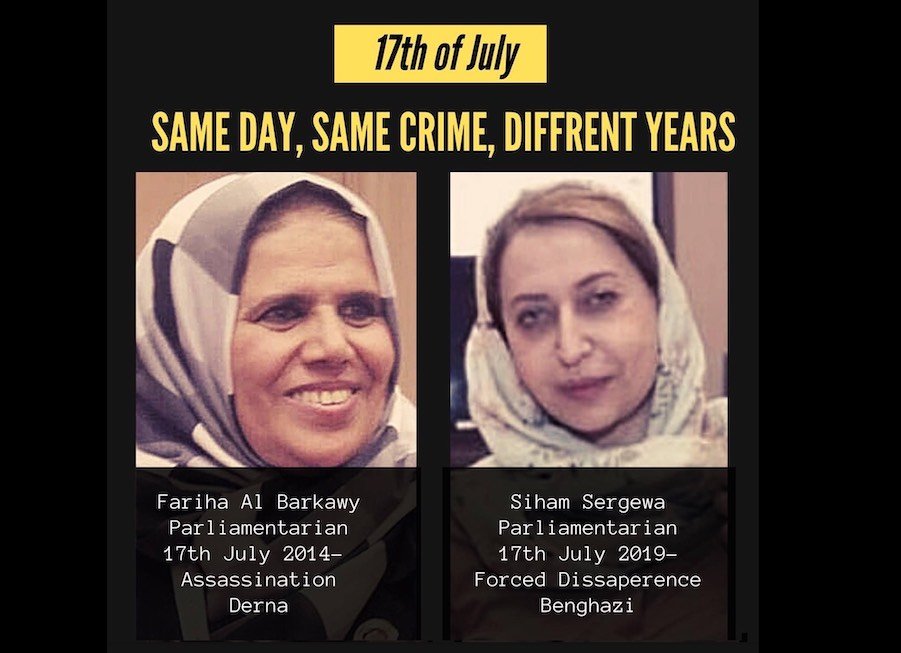LWPP marks a dark anniversary for Libya
LWPP campaign image
The Libyan Women’s Platform for Peace (LWPP) draws attention to the dark anniversary of June 17, a date on which two Libyan women parliamentarians were silenced in incidents just five years apart.
On June 17, 2014, gunmen assassinated Fariha al-Berkawi in Derna, the city which she had represented as a member of the General National Congress. Her killing came just three weeks on from the murder of activist, politician and LWPP-co-founder Salwa Bugaighis in Benghazi.
Exactly five years later, on June 17, 2019, Siham Sergewa, a member of Libya's House of Representatives, was abducted in Benghazi. She has not been seen since.
No serious investigations into any of these crimes has been concluded. As Libya prepares for potential national elections, LWPP marks these dark anniversaries, and has issued its ‘Keys to Peace’ approach encompassing preventive, protection and accountability measures along with participation measures to ensure women's full and meaningful political participation.
LWPP's "Keys to Peace" Comprehensive Approach
As Libya gears up for potential elections, and to ensure free, fair and inclusive elections, LWPP advocates for it's "keys to peace" comprehensive approach encompassing preventive, protection and accountability measures along with participation measures to ensure women's full and meaningful political participation.
Participation : The electoral legislations should ensure 30% at least representation of women and the participation and representation of IDPs and cultural minorities. Ensuring that Libyan authorities urgently issue regulations that accord with Libya’s obligation to protect freedoms of speech and assembly and association pursuant to the Roadmap established by the LPDF.
Accountability: Holding spoilers accountable. Imposing sanctions on spoilers of the political process who obstruct the electoral process pursuant to Security Council Resolution 2570.
Protection: Monitoring the elections by representatives of regional and international organizations such as the EU and the Afrcan Union is crucial in ensuring that the elections are credible and transparent. Ensuring that civil society groups are enabled to take part in monitoring the elections.
Prevention: Holding a National Reconciliation Forum . The National Reconciliation Forum should bring together key social and political stakeholders. This should be meshed with formulating a national charter which will secure the buy-in of all the stakeholders and accepting the outcome of the elections.

